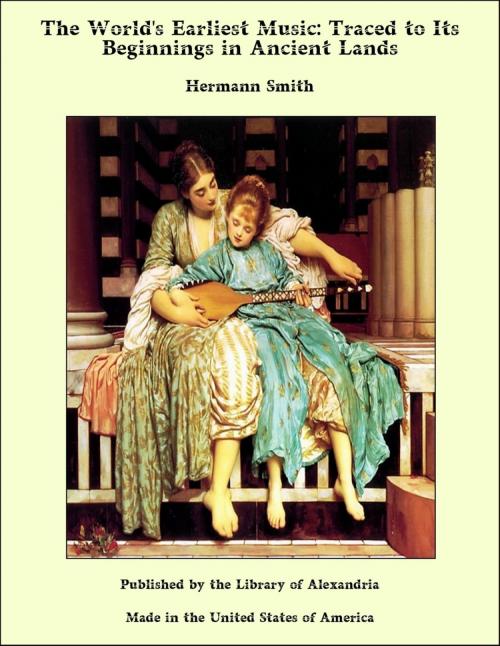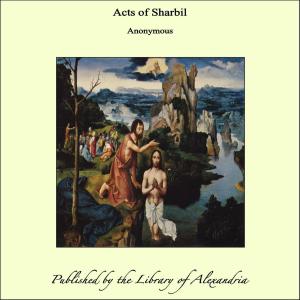The World's Earliest Music: Traced to Its Beginnings in Ancient Lands
Nonfiction, Religion & Spirituality, New Age, History, Fiction & Literature| Author: | Hermann Smith | ISBN: | 9781465610638 |
| Publisher: | Library of Alexandria | Publication: | March 8, 2015 |
| Imprint: | Language: | English |
| Author: | Hermann Smith |
| ISBN: | 9781465610638 |
| Publisher: | Library of Alexandria |
| Publication: | March 8, 2015 |
| Imprint: | |
| Language: | English |
THE human interest in the past never dies, its hold upon us increases with the growing years, and every gain that is made to the store of knowledge does but add to the zest with which we search for more; nation vies with nation for the glory of recovering relics of life that are strewn along the path of death. From the sands and from the tombs, from the paintings and the graven tablets, and from the faces of the rocks we rehabilitate the vision of the mighty dead; a recovered name is a page of a people’s history, and we seek with renewal of eagerness for the pages that should follow or precede. The long buried spoils of temples and palaces excite the imagination, the grandeur of gold and silver, the wealth of art and ornament, and the resplendent jewels, appeal to the love of power and of possession, active or dormant in every heart; yet not less do we treasure the fragile mementoes, the simplest things, rendered up from the past that were the surroundings of domestic life, that speak to us of the household ways, and of the personal pursuits of the men, and of the adornment of the women who for untold ages have ever sought “their pleasure in their power to charm.” The instruments of music that in the remoter ages of the past were in daily use are seldom found, for the nature of the materials of which they were constructed was adverse to their preservation; those that have been found are rarely in their original condition, perfect in all their parts, or suitable for being put to the test of playing, and the resource left to us is to obtain some approximate condition by means of models, and then adapt some modern method for eliciting sound, which method as near as we can judge shall be the counterpart of the original device.
THE human interest in the past never dies, its hold upon us increases with the growing years, and every gain that is made to the store of knowledge does but add to the zest with which we search for more; nation vies with nation for the glory of recovering relics of life that are strewn along the path of death. From the sands and from the tombs, from the paintings and the graven tablets, and from the faces of the rocks we rehabilitate the vision of the mighty dead; a recovered name is a page of a people’s history, and we seek with renewal of eagerness for the pages that should follow or precede. The long buried spoils of temples and palaces excite the imagination, the grandeur of gold and silver, the wealth of art and ornament, and the resplendent jewels, appeal to the love of power and of possession, active or dormant in every heart; yet not less do we treasure the fragile mementoes, the simplest things, rendered up from the past that were the surroundings of domestic life, that speak to us of the household ways, and of the personal pursuits of the men, and of the adornment of the women who for untold ages have ever sought “their pleasure in their power to charm.” The instruments of music that in the remoter ages of the past were in daily use are seldom found, for the nature of the materials of which they were constructed was adverse to their preservation; those that have been found are rarely in their original condition, perfect in all their parts, or suitable for being put to the test of playing, and the resource left to us is to obtain some approximate condition by means of models, and then adapt some modern method for eliciting sound, which method as near as we can judge shall be the counterpart of the original device.















